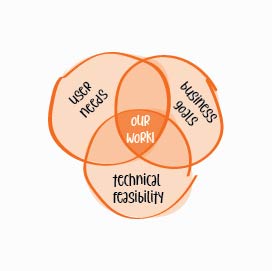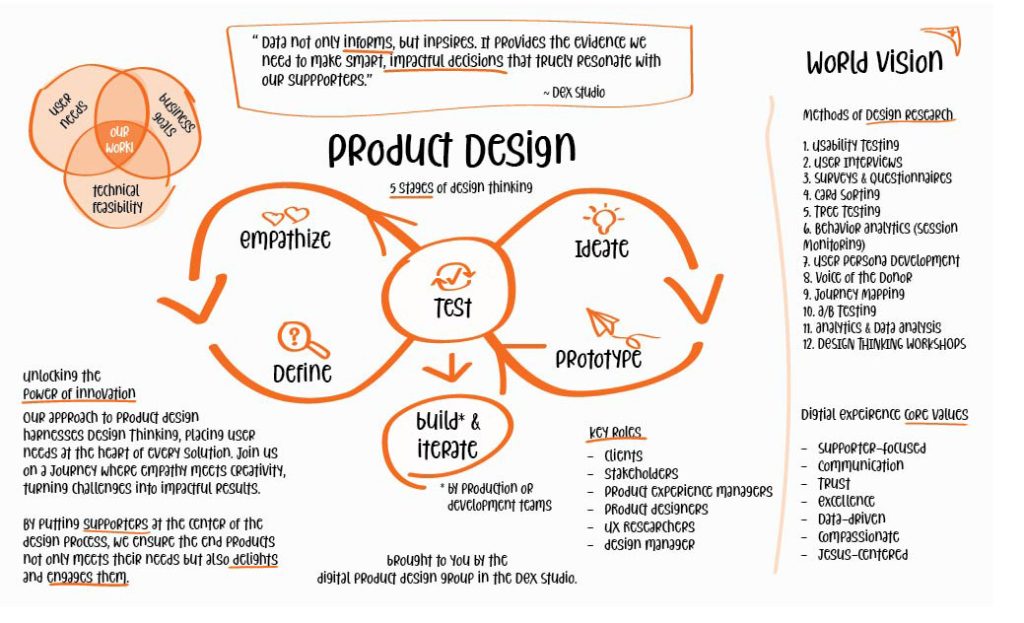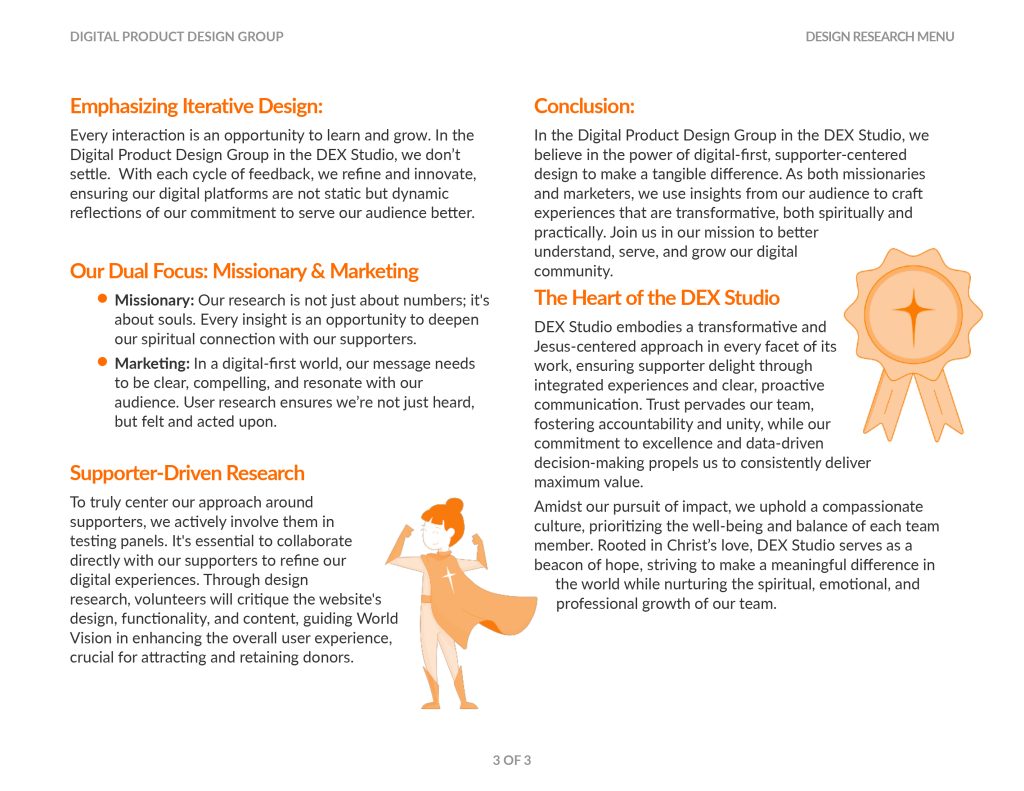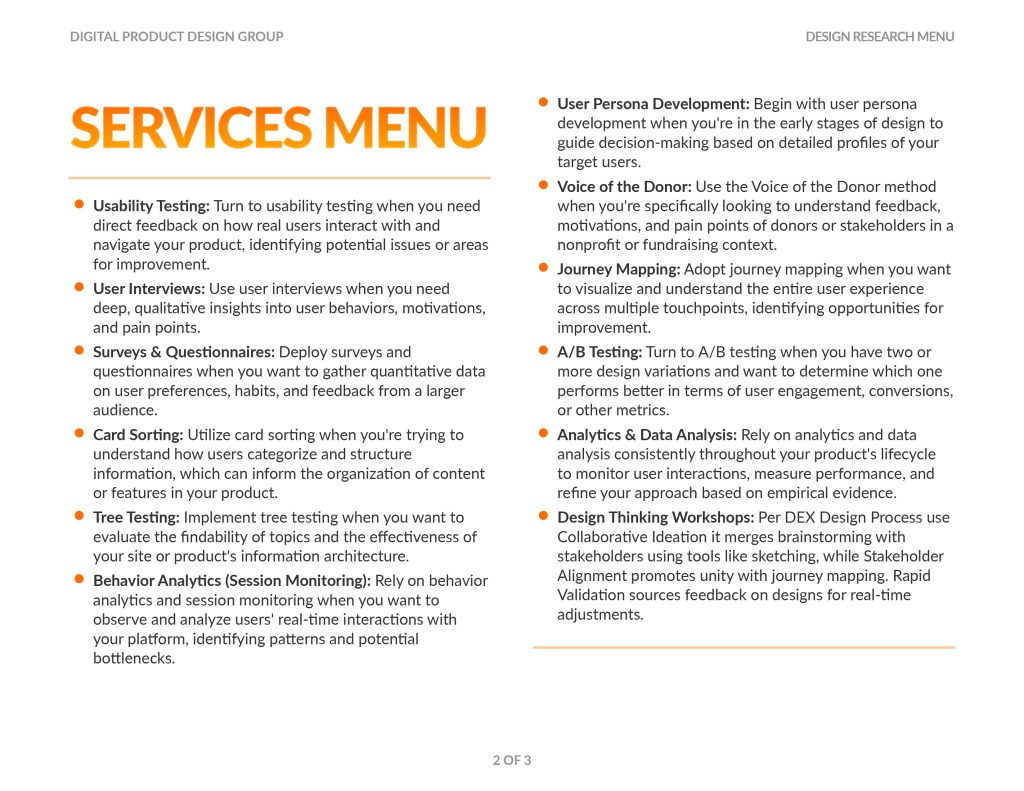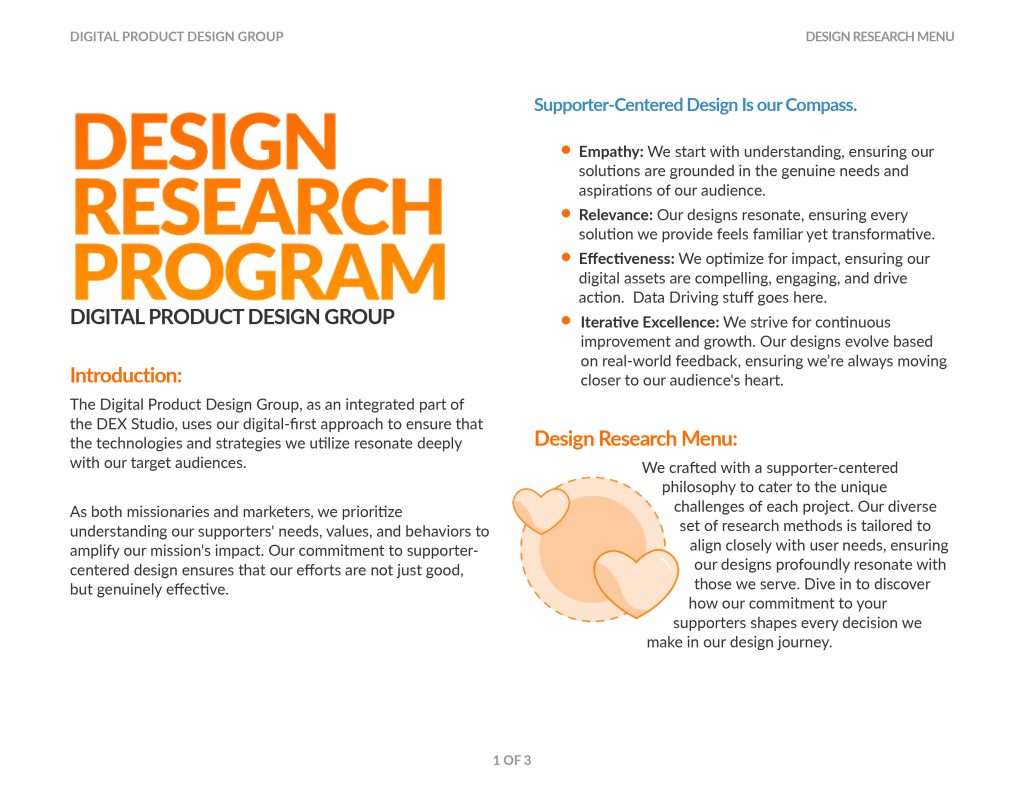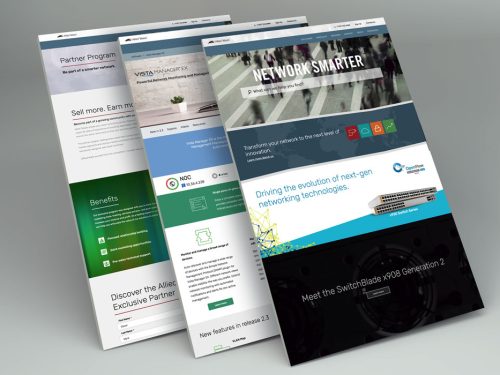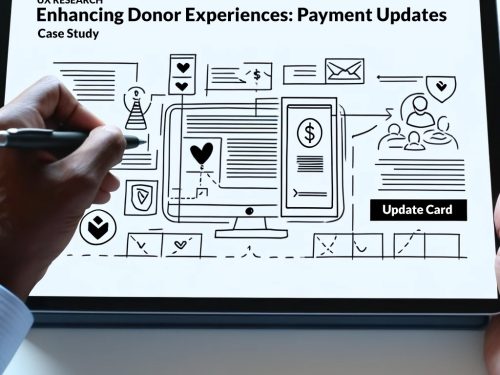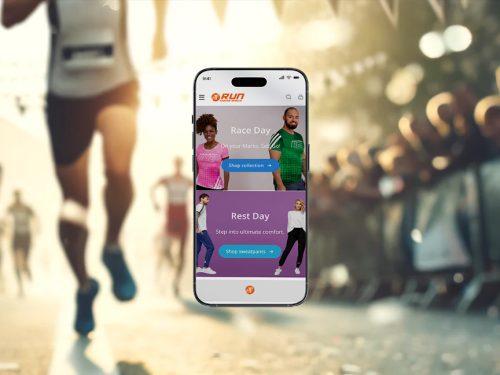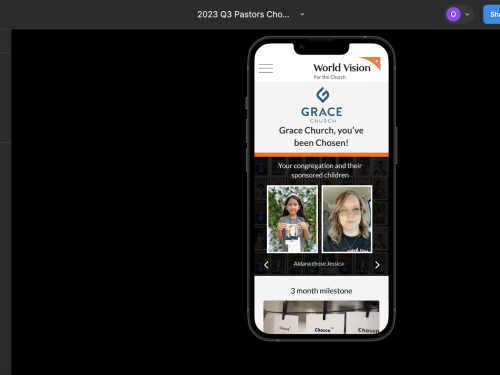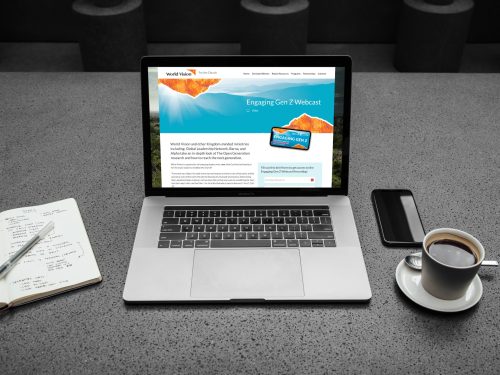Maturation of the Design Research Program
Project Description
Introduction: At World Vision’s DEX Studio, we believe in the power of transformative, human-centered design. In our pursuit of impact, we recognized the need to strengthen our design research program, making it an integral part of our digital product design process. Our vision was clear: emphasize iterative design, actively involve our supporters, and create experiences that are both spiritually and practically transformative.
Iterative Design Philosophy: In the Digital Product Design Group, we understand that every interaction is an opportunity to learn and grow. We are committed to refining and innovating, ensuring that our digital platforms evolve with each feedback cycle. Our digital products are not static but dynamic reflections of our dedication to serving our audience better.
Dual Focus: Missionary & Marketing: Our research program serves a dual purpose. On one hand, it’s about deepening our spiritual connection with our supporters. Every insight is an opportunity to nurture our mission. On the other hand, in a digital-first world, our message must be clear, compelling, and resonate with our audience. User research ensures that we’re not just heard but also felt and acted upon.
Supporter-Driven Research: To truly center our approach around supporters, we actively involve them in testing panels. Collaboration with our supporters is essential for refining our digital experiences. Through design research, volunteers critique website design, functionality, and content, guiding World Vision in enhancing the overall user experience—critical for attracting and retaining donors.
Key Accomplishments:
- Audit and Gap Analysis: Conducted a comprehensive audit of existing research tools and established a gap analysis to identify areas of improvement.
- Program Menu: Created a program menu outlining a variety of research methods to guide our design teams.
- Decision Tree of Design Research Methods: Developed a streamlined tool to help designers, researchers, and stakeholders select the most effective research methods for their projects, ensuring informed, user-centered decisions.
- Standardized Templates: Created standardized report templates for consistency in reporting and analysis.
- Enhanced UX Toolset: Improved our UX toolset to support a more robust research program.
Volunteer Engagement: We conducted tests with a diverse group of real users, including current sponsors, through the Friends of World Vision volunteer design research program. This program not only ensures that worldvision.org is user-friendly and efficient for all visitors but also offers opportunities for our supporters to contribute to the WV mission. By actively engaging supporters, we strengthen our relationship and shared ownership, building a robust human-centered design practice.
Conclusion: The transformation of our design research program is a testament to our commitment to excellence and our dedication to serving both our supporters and our mission. In the heart of the DEX Studio, we continue to embody a Jesus-centered approach, fostering trust, unity, and accountability while nurturing the growth and well-being of our team. Together, we strive to make a meaningful difference in the world through digital-first, supporter-centered design.
Join us in our mission to better understand, serve, and grow our digital community. Together, we can create experiences that are not just user-friendly but spiritually enriching, ensuring that our digital platforms reflect the transformative power of our mission.
Design Research Program
Taking program to next level
DEX Studio

